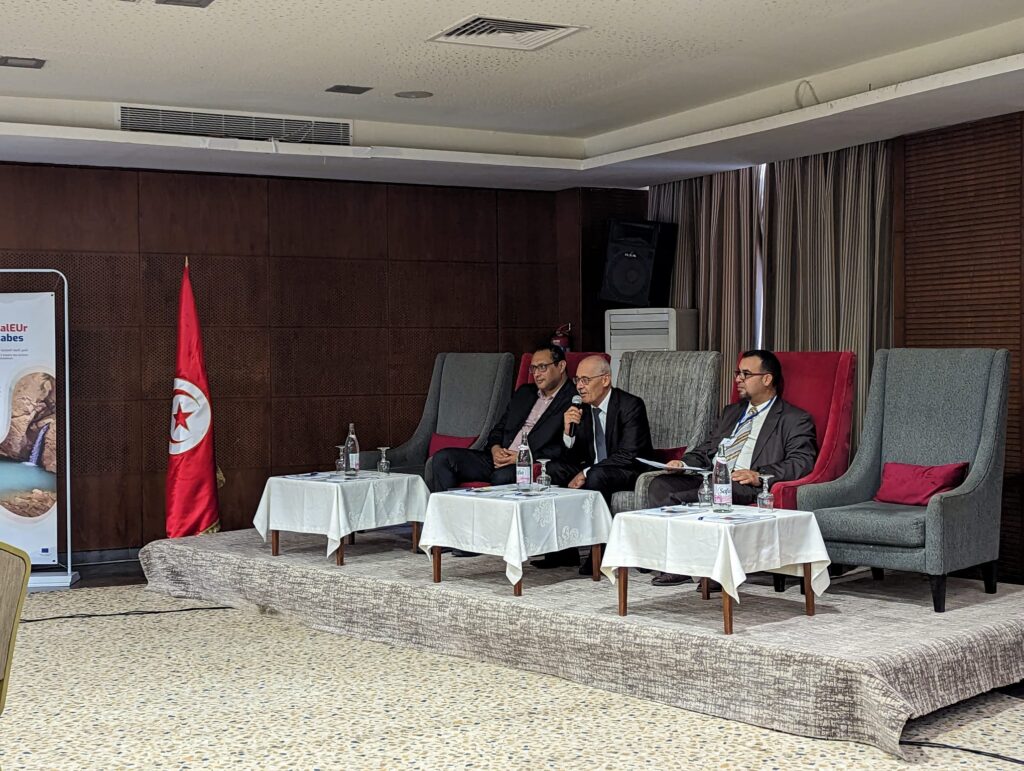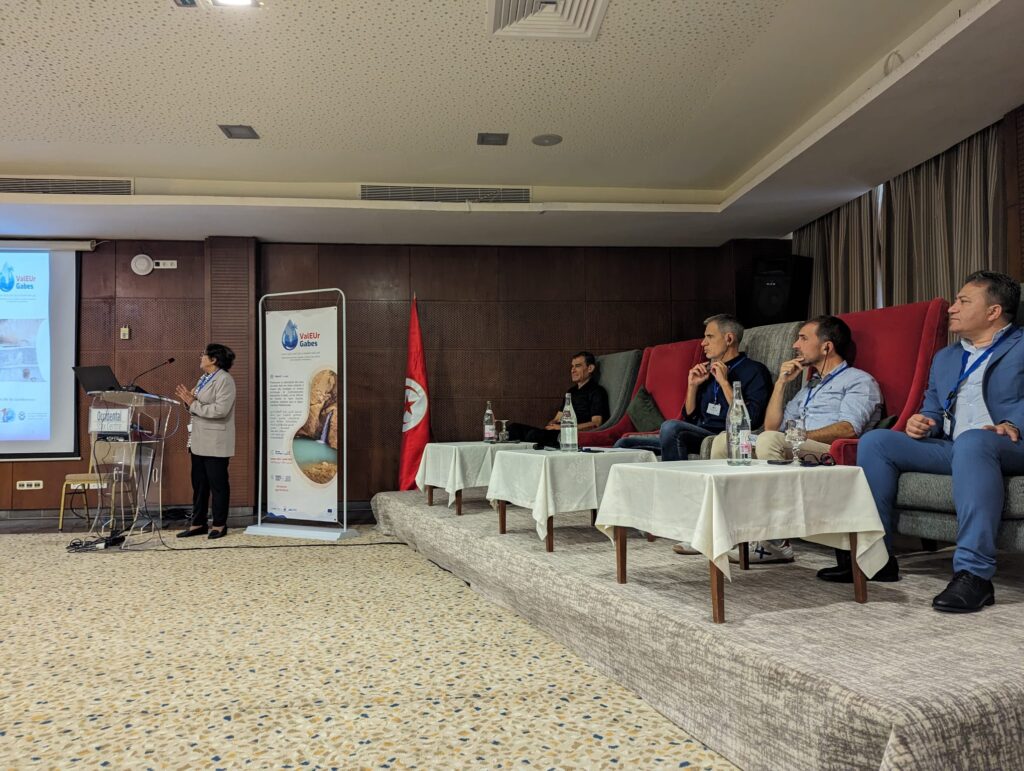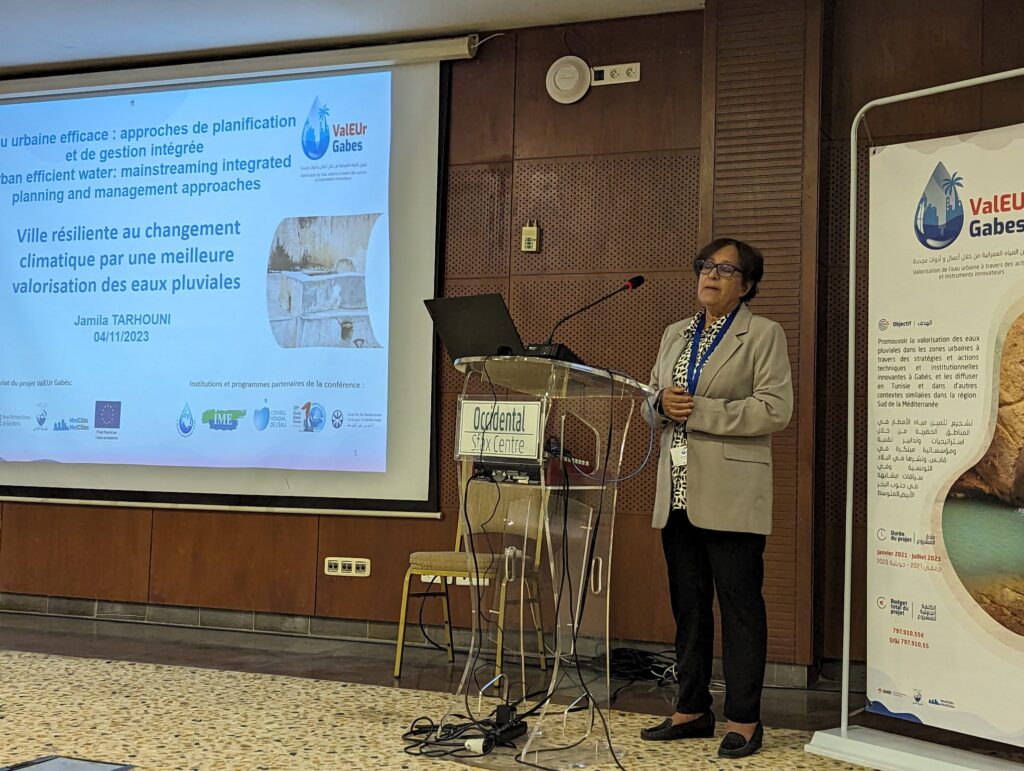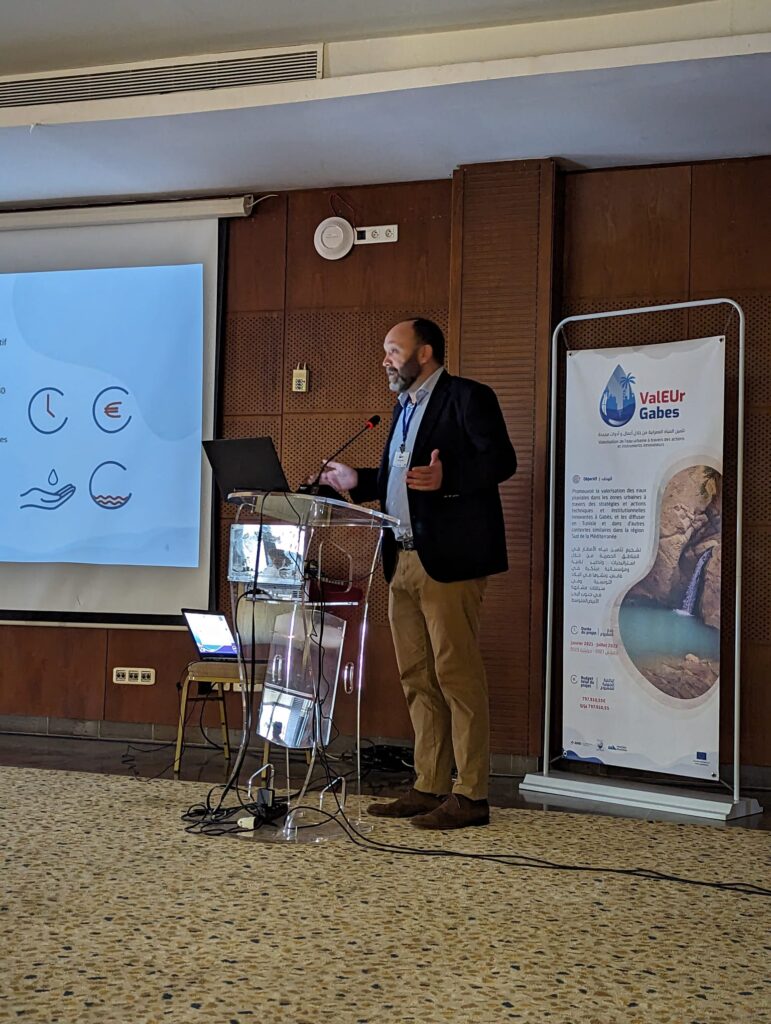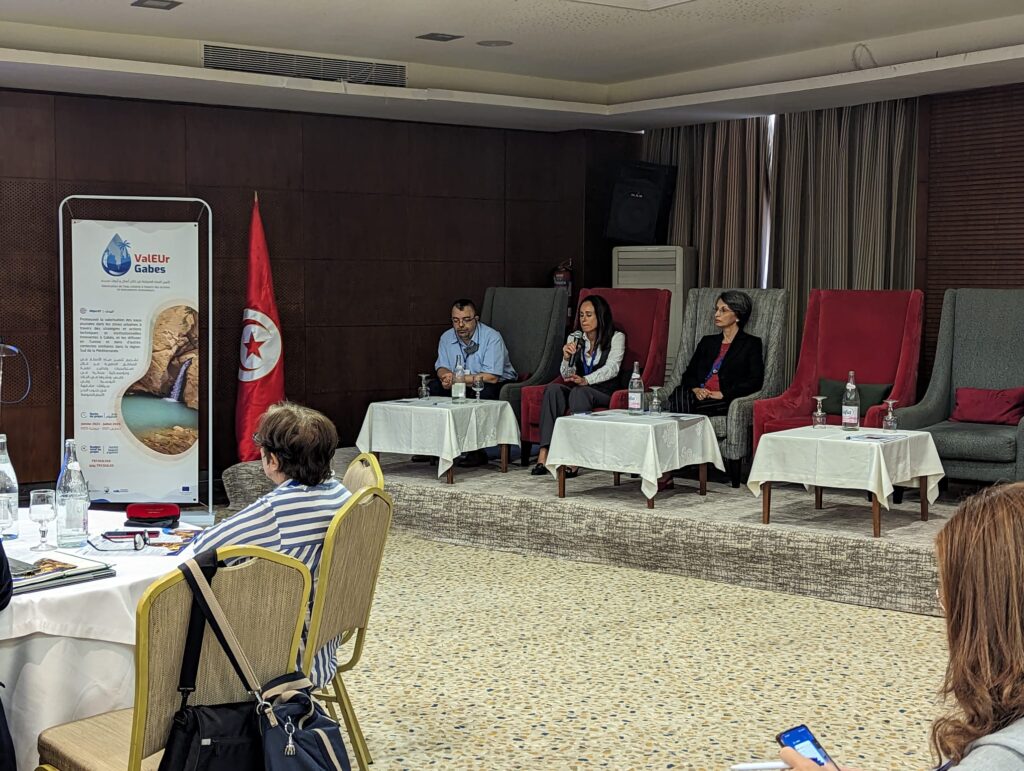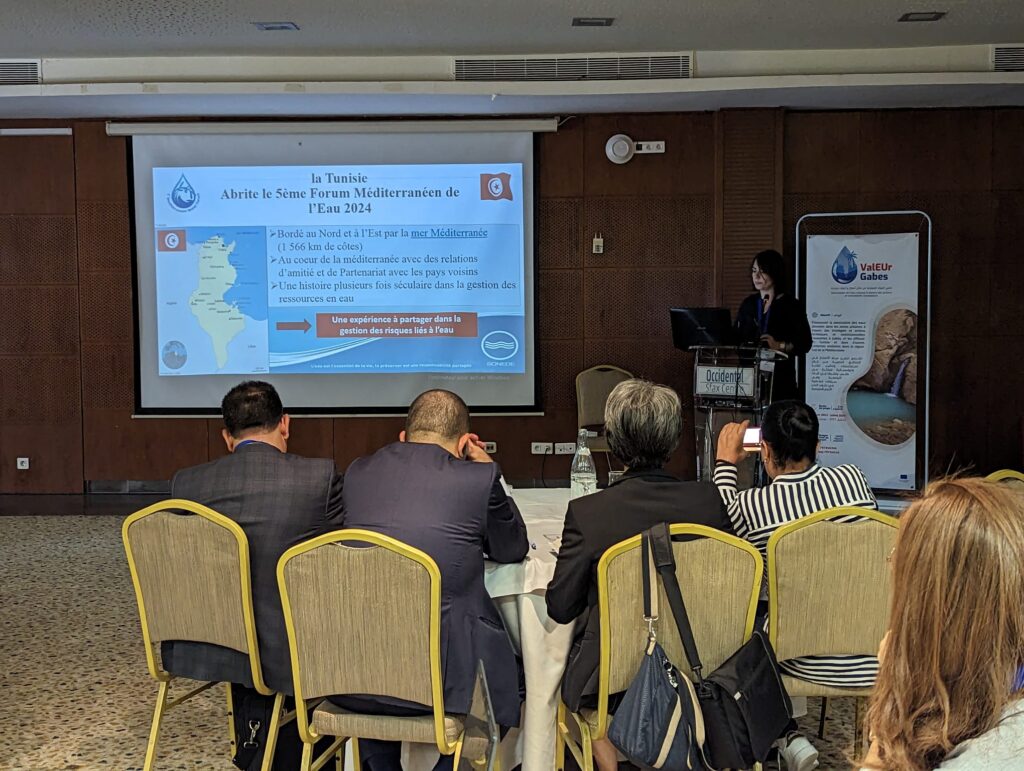One of the culminating moments of the ValEUr Gabès project arrived this November with the regional conference “Urban efficient water: mainstreaming integrated planning and management approaches”. Public institutions operating in the water sector in Tunisia and Malta, as well as regional institutions, such as GWP-MED, IME, EMWIS (SEMIDE), civil society and MedCities members Barcelona Metropolitan Area (AMB) , Gabès, Tangier and Kairouan, were the protagonists of this conference. This event is part of the activities of the 5th Mediterranean Water Forum, preparatory to the World Water Forum which will be held in Bali, Indonesia, at the end of 2024. Sixty participants from Tunisia, Morocco, Libya, Malta, Greece, France, and Spain participated.
For two days, the conference aimed to reflect on the concerns and good practices implemented in the region concerning reusing treated wastewater and rainwater. We also had the opportunity to learn about implementing the innovative WEFE approach to nature-based solutions, and understand the several initiatives put in place by municipalities for the effective management of urban water.
In terms of conclusions, here are some points to note about the debates:
- Cities are key actors in water management: the challenges of climate change, including drought and episodes of flooding in the urban environment, are forcing municipalities to act for non-conventional water management. We saw the examples of urban milieu waterproofing and the promotion of sustainable urban drainage systems (case of AMB), watering green spaces with treated wastewater (case of Tangier), planning the use of non-conventional water resources (case of Gabès) and universal access to drinking water (case of Kairouan), besides all the mobilization of city stakeholders around this priority.
- Integral water planning is a must. This approach considers its interaction – the nexus – with energy efficiency, food production and safeguarding green and blue ecosystems. It is necessary to generalize the concept of NEXUS, promote the existing good practices and methods for its implementation, and build capacities for its implementation.
- Minimize water use: We must minimize water use upstream before considering reuse. One of the messages coming from the illustrative example of Malta is the work to reduce water demand by 25% in the coming years. This initiative should inspire countries across the region.
- Work on eliminating all forms of water loss. It is inconceivable today that we still have losses of up to 20, 30 and even 40% on our networks! Although the workshop concerned the valorization of unconventional water, everyone agreed that working on this subject without addressing the loss of conventional water is insufficient. For this, we should try to mobilize investment in water infrastructure.
- Work in a coordinated manner at the regional level. Regional initiatives such as the Observatory of Unconventional Resources and Renewable Energy should play a catalytic role in promoting unconventional waters in Mediterranean countries, with a short-term reduction of the availability of rainwater.
- Work more on the region’s specificities, such as oasis systems and others. Integrating them into integrated water management strategies throughout an area or country is necessary.
- On national and local governance and regulations. Water must be over any institution to save it. A multi-sectoral governance system becomes necessary to address the needs coming from different sectors and mobilize all stakeholders around effective management strategies, whether at the national or local level.
- Generalize pilot experiences: one of the significant challenges is to move from small pilot initiatives to a real generalization of solutions (mainstreaming) by ensuring their sustainability over time and maximizing their impact.
- Capitalize, capitalize and capitalize. We must continue to learn from good practices and the people on the ground. Sharing all these successful experiences and bringing them to decision-makers is a fundamental task to promote political change in the integrated approach to water and to face the future scenarios that arise due to the climate crisis.
MedCities and the other partners of the ValEUr Gabès project will participate in the 5th Mediterranean Water Forum in early February in Tunis. Our website will soon share a document from this conference with conclusions and recommendations. Meanwhile, find here the speakers’ presentations.



